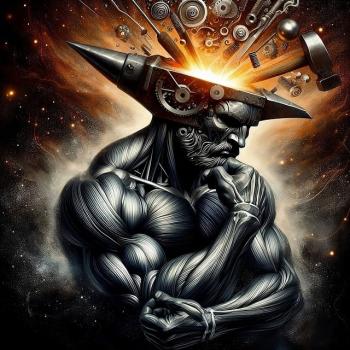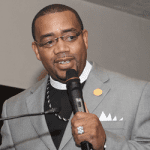The current evangelical-fundamentalist hysterics over deconstruction is disappointing but hardly surprising. Like Critical Race Theory (CRT) or words like “socialism” or anything they don’t really understand, it’s one more word and event they can add to their always multiplying store of fears, reactions, rages, and curious mysteries.
The amazing thing to me is that the concept of deconstruction (for a good understanding of the concept, see here), the idea, what it means and expresses, is inherent to the Christian narrative and life. It describes the experience of the first Christians, who were Jews. The Twelve Disciples, all Jews, went through what we would call now, deconstruction. They had a view of the world, of God, of salvation, that had to be re-examined, unpacked, questioned, and, well, deconstructed.
Jesus was born a Jew. In fact, in the incarnation, he is also the true Israel. God comes to the world, through a people chosen, for this very purpose. The Hebrew people, the Jews, had the promises, the scriptures, the events, the story of salvation. They weren’t living or telling another story as far as the basic outline of history and God’s purposes. Still, when Jesus comes, they learn their understanding of that story and God’s purposes were not completely truthful/accurate.
I think we might put the fundamentalist/evangelical world in that same category. They are not outside the Jewish/Christian narrative, the events, the history, or the scriptures. They are familiar with it all. But therein lies the problem. It’s always the people within the tent, on the inside, who are often blind to where things have gone off the rails or have a difficult time seeing how what they think they know, could be interpreted or understood differently.
Deconstruction is a journey and not a single event. It might be summed up in the words of Jesus, “You have heard it said, but I tell you…” In other words, what we thought was the correct or true interpretation/understanding of something was wrong or only partial. However, it is the wrestling with that, learning we may have been wrong, that takes time. Where else may we have been wrong? The Twelve Disciples no doubt spent the rest of their earthly lives deconstructing.
One of the supposed features of the Reformation was the idea we were to always be reforming (which seems to be long forgotten at this point). It wasn’t a one-time event, but a lifelong process. I would suggest that deconstructing should be the same. It may start as an initial event or a series of events that leads to deconstruction, but from then on it should become a never-ending process. We should always be reforming, deconstructing, and repenting. For all the fundamentalist/evangelical hand wringing and worries, deconstruction is actually intrinsic to a healthy Christian journey.
A good example of deconstruction is Acts 10:
“About noon the following day as they were on their journey and approaching the city, Peter went up on the roof to pray. He became hungry and wanted something to eat, and while the meal was being prepared, he fell into a trance. He saw heaven opened and something like a large sheet being let down to earth by its four corners. It contained all kinds of four-footed animals, as well as reptiles and birds. Then a voice told him, ‘Get up, Peter. Kill and eat.’
‘Surely not, Lord!’ Peter replied. I have never eaten anything impure or unclean.’
The voice spoke to him a second time, ‘Do not call anything impure that God has made clean…’
…While talking with him, Peter went inside and found a large gathering of people. He said to them: ‘You are well aware that it is against our law for a Jew to associate with or visit a Gentile. But God has shown me that I should not call anyone impure or unclean.’”
To initiate the deconstruction process in the area of what is clean and unclean, it took a vision from God. But think about all the other Jewish people who weren’t given a vision but heard Peter’s story. The majority rejected his story and held to the clean/unclean paradigm they had believed for centuries. But others allowed themselves to consider that they may have been wrong and set out to reflect and unpack such. They went into a process of deconstruction.
What we term deconstruction is woven throughout the entire Christian narrative, events, and teaching. Those first few centuries of the Christian church were a process of deconstruction, first for the Jewish people and then for Gentiles. When unbelievers or those considered “pagans” encountered this new story about a man named Jesus, his death, burial, and resurrection, they too went through a process of deconstruction.
The reason some fundamentalists and evangelicals are fearful or critical of deconstruction, to the degree they even understand the term, is they too often think it means rejecting the faith. Yes, for some it might mean becoming an atheist, agnostic, or something else. However, much of that wasn’t from deconstructing. Much of that was due to a rejection of fundamentalism. Christian fundamentalism is probably one of the largest manufacturers of atheists and agnostics in the world.
For many, however, deconstruction wasn’t the rejection of their faith; it was the very recovery of faith. The first Christians weren’t rejecting their Jewish faith, history, scriptures, or God. They were in fact embracing all of that in the new light of Christ. They were deconstructing and it’s part of the process of becoming a Christian and the journey from that point forward. It is not something to fear; it is, in fact, intrinsic to the journey.
I have a Patreon Page—please consider supporting my writing.

















